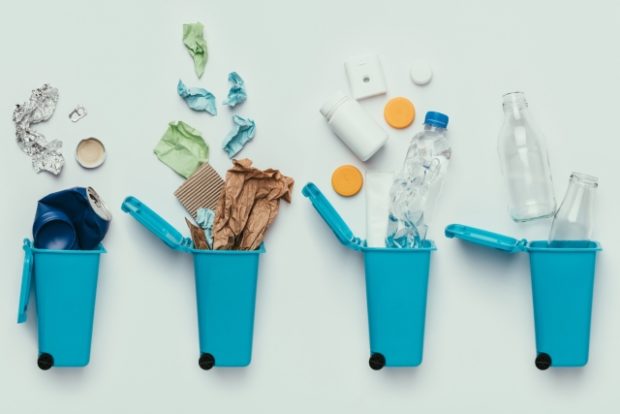Connected waste systems: Towards better waste management in cities?

Smart waste systems allow cities to optimize waste collection and save money. Image: LightFieldStudios / IStock.com
Connected garbage bins don’t just collect our trash. They can also gather and send data to optimize city waste collection, to adapt garbage collection routes and to save money.
As of the spring of 2021, the city of Prague will trial a new waste collection pilot project. The Czech capital is already a European pioneer in terms of waste management; the city set up an underground smart bin system back in 2018. The city now wants to make waste treatment even more efficient.
The capital has renewed its partnership with Sensoneo, a global provider of intelligent waste management solutions. The new project will focus on four major areas, in particular, on optimizing garbage collection itineraries. Thanks to the technology developed by Sensoneo, the routes will be simplified to reduce the number of vehicles and make it easier for inexperienced drivers to understand the routes.
In a nutshell, Prague wants to analyze all the data it possessed on waste collection and management, to better its services.
“Innovative technologies, which we will test during the pilot project, follow Prague’s strategy focused on sustainability and a circular economy. I am convinced that this project will contribute to our plan of making Prague an active initiator of green technologies,” said Petr Hlubuček, deputy mayor of Prague for the environment, infrastructure, technical equipment, and safety, to SmartCitiesWorld.
A more flexible way to manage refuse
Smart trash can technology makes it possible to understand residents’ consumption and waste production patterns. Thanks to sensors, smart technologies send valuable information, to notify, for instance, the areas where waste bins get filled up faster. City authorities can then adapt their collecting schedules or set up more garbage containers. Connected garbage bins also allow municipalities to optimize collecting schedules since trucks pick up waste only when the containers are full, and this implies important savings for city authorities.
In France, in the Gironde area, a chatbot called Trizzy helps municipalities in their waste management. “It enables discussion with residents by asking them which waste they want to throw away in order to guide them in their approach, directing them to the right centers or advising them on good practices in sorting and recycling,” explains the Demain la ville blog.
According to the World Bank, the weight of waste produced per day in the world is 0.74 kg per capita. However, this global average hides local discrepancies: waste production in Western countries far exceeds that of developing nations. And daily waste production continues to increase; by 2050, it is expected to reach 3.4 billion tons per day. NVG
RELATED STORIES:
How sewage sludge could be used to make the plastics of tomorrow
Cigarette butts can be recycled and may well form part of future homes